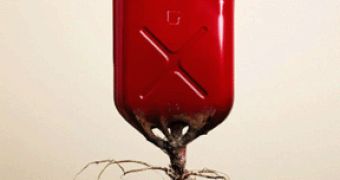A few days back, we reported on how the EU Commission might be rethinking its plans for the future of the biofuel industry, on account of the latter's interfering with food production.
More precisely, several specialists made it public news that, due to recent developments in the field of agriculture, the food and the biofuel industry could soon enter a rather fierce competition for resources.
Therefore, as long as national governments and international organizations do not scale down their current standards for biofuel production, a food crisis could be just around the corner.
Recent news on this topic informs us that, after looking into the arguments listed above, EU Commissioners have agreed that the time has come to curb the production of crop-based biofuels.
Business Green reports that Climate Commissioner Connie Hedegaard and Energy Commissioner Guenther Oettinger both explain how, although crop-based biofuel production need be cut down, this does not mean that efforts will no longer be made towards sustainability and overcoming society's dependence on fossil fuels.
Thus, the EU is to continue improving on its biofuel industry, yet mostly use non-food feedstocks as raw materials.
To cut a long story short, further progress can be made in terms of cutting down on current pollution levels, all the while keeping a close eye on whatever food resources our society has at its disposal.
According to the same source, the two aforementioned European Commissioners made a case of how, “It is wrong to believe that we are pushing food-based biofuels. In our upcoming proposal for new legislation, we do exactly the contrary: we limit them to the current consumption level, that is five per cent up to 2020.”
Furthermore, “We are pushing biofuels that help us in cutting substantial CO2 emissions, do not compete with food and are sustainable and green at the same time.”
It is expected that both the European Parliament and the EU member states will vote on this decision this upcoming October, after official plans and several detailed analyses greet the public eye in written form.

 14 DAY TRIAL //
14 DAY TRIAL //